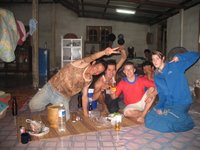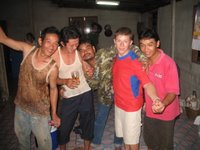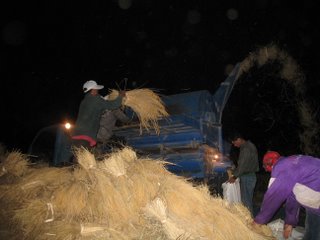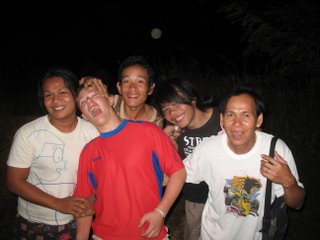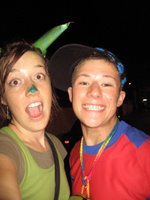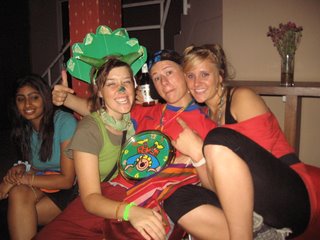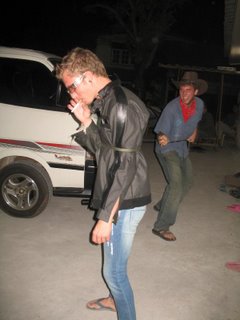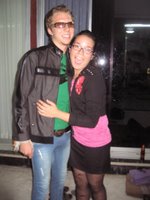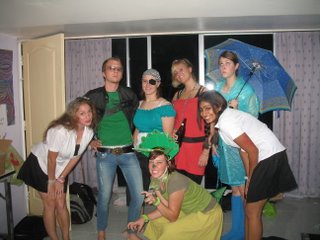by Darren Legge
Environmental activist Julia “Butterfly” Hill often sits in trees. July 2006 marked the first time she had ever shared a walnut tree with actress Daryl Hannah in South Central Los Angeles. For the better part of 17 days, film crews watched attentively as dozens of celebrities like Hannah and Hill joined the protests of the South Central Farmers, a group of families tending 14 acres of organic crops in the heart of the city’s industrial zone.
For 13 years, the South Central Community Garden provided over 2,000 of L.A.’s poorest residents with healthy meals and medicinal herbs as an alternative to high-priced medication. “We’ve done this out of sheer necessity to try to survive,” said Tezozomoc, a community leader. “We have no other choice.”
The City of Los Angeles purchased land from developer Ralph Horowitz in the 1980s in an effort to construct a trash incinerator. Public outcry killed the project, and the lot remained vacant until 1994, when the L.A. Harbor Department granted a revocable permit to the L.A. Food Bank to use the site for a community garden.
But, in 2003, the city sold the property back to Horowitz, who had plans for a cement-warehousing complex. On the morning of June 13, 2006, police surrounded the farm and gave residents 15 minutes to evacuate. Residents stayed put. On July 5, officers seized at least 39 protestors chained to the walnut tree, a picnic table, and barrels filled with cement. One man was arrested for throwing a milk crate at the driver of a bulldozer.
The community that had emerged from this now-demolished farm was something rare indeed. “I’m very thankful for these neighbors,” resident Maria Gonzales said of her life in the urban garden. “If you don’t have something that I have, I’ll give you some of mine. That’s the sense of respect and trust we have among one another.”
The community worked together to address its own most basic issues—namely food security and health. Among the South Central Farmers’ central tenets was the affirmation of the “fundamental right to political, economic, cultural, and environmental self-determination of all peoples.”
In fact, the United States federal government recognized this right in 1992 when it ratified the International Covenant on Civil and Political Rights. Article one, section one states: “All peoples have the right to self-determination.” In no case may a people be deprived of its own means of subsistence.
The country has acknowledged this universal right, but on the ground, people go to great lengths to defend their community resources. Why don’t governments protect them?
Perhaps they’re corrupt. Los Angeles sold the farm for $8 million under market value, stirring accusations of a backroom deal between Horowitz and City Attorney Rocky Delgadillo. “If we were to sit down and do a pure economic analysis, the benefits that [the city] would get from Horowitz would actually be negative,” says Tezozomoc.
Perhaps it’s because law gives corporations the same rights it ascribes to people. Freedom of speech provides a mandate for advertising and political contributions. The freedom not to speak makes compulsory product labeling unconstitutional. An 1889 Supreme Court decision established the “personhood” of a corporation, and in Los Angeles it allowed a developer to persuade the city to protect the inalienable rights of a warehouse. The 14th Amendment granted equal protection to blacks in 1868; today, it has emancipated the corporation.
Perhaps the U.S. Congress bit off more than it could chew when it recognized the right to self-determination. Throughout much of the democratic world, the notion of the community as a meaningful unit of society has all but disintegrated. In order to respect the collective rights of a people, a country must have communities that can make coherent decisions. Maybe self-determination simply isn’t viable in countries like the U.S.
But a growing international peasant farmers’ movement called Via Campesina believes it is possible. “The principle of food sovereignty supports all peoples in their right to produce their own food independently of market conditions,” says Via Campesina. “We reiterate our call to governments to guarantee us the effective access and control over the natural and productive resources that we need to truly realize our human rights.”
Human rights treaties and organizations offer a potential outlet for marginalized groups to fight for the resources they believe they are entitled to. Inadequate frameworks for the fulfillment of human rights drive people toward desperate measures.
Some of L.A.’s poorest residents resisted police from their avocados and sunflowers because they knew what they wanted, and weren’t about to abandon their 0.53 square kilometers of nourishment and hope.
Daryl Hannah saw the community’s potential to take control of its future. So did Dennis Kucinich and Red Hot Chili Peppers bassist Michael “Flea” Balzari. Preeminent among the South Central Farmers’ eclectic fan club was Oakland Mayor Jerry Brown, who proclaimed, “L.A. could afford to keep this. It’s only a matter of values.”
Despite the wash of public support, the only ones who can defend this community’s rights are the people within. “To secure effective and active participation of communities,” writes Ruchi Badola of the Wildlife Institute, “programmes must restore the local institutions concerned.”
The United Nations has recognized important obstacles to people claiming collective rights, not least of which is the clamorous task of identifying who is entitled to claim what. Unless and until communities demand their rights, however, they will continue to deteriorate and suffer. According to the UN’s human rights-based approach to development cooperation, “human rights claims are generally made most effectively by people acting together as a group.” We only get what we are organized to take.
Labels: my article


